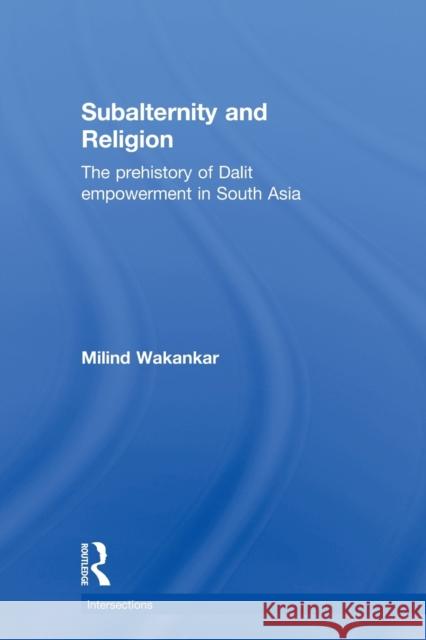Subalternity and Religion: The Prehistory of Dalit Empowerment in South Asia » książka
Subalternity and Religion: The Prehistory of Dalit Empowerment in South Asia
ISBN-13: 9780415501989 / Angielski / Miękka / 2011
Subalternity and Religion: The Prehistory of Dalit Empowerment in South Asia
ISBN-13: 9780415501989 / Angielski / Miękka / 2011
(netto: 211,90 VAT: 5%)
Najniższa cena z 30 dni: 216,55
ok. 22 dni roboczych
Dostawa w 2026 r.
Darmowa dostawa!
This book explores the relationship between mainstream and marginal or subaltern religious practice in the Indian subcontinent, and its entanglement with ideas of nationhood, democracy and equality. With detailed readings of texts from Marathi and Hindi literature and criticism, the book brings together studies of Hindu devotionalism with issues of religious violence. Drawing on the arguments of Partha Chatterjee, Martin Heidegger and Jacques Derrida, the author demonstrates that Indian democracy, and indeed postcolonial democracies in general, do not always adhere to Enlightenment ideals of freedom and equality, and that religion and secular life are inextricably enmeshed in the history of the modern, whether understood from the perspective of Europe or of countries formerly colonized by Europe. Therefore subaltern protest, in its own attempt to lay claim to history, must rely on an idea of religion that is inextricably intertwined with the deeply invidious legacy of nation, state, and civilization. The author suggests that the co-existence of acts of social altruism and the experience of doubt born from social strife - 'miracle' and 'violence' - ought to be a central issue for ethical debate. Keeping in view the power and reach of genocidal Hinduism, this book is the first to look at how the religion of marginal communities at once affirms and turns away from secularized religion. This important contribution to the study of vernacular cosmopolitanism in South Asia will be of great interest to historians and political theorists, as well as to scholars of religious studies, South Asian studies and philosophy.











